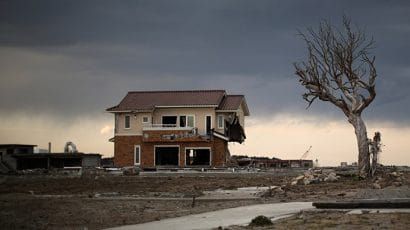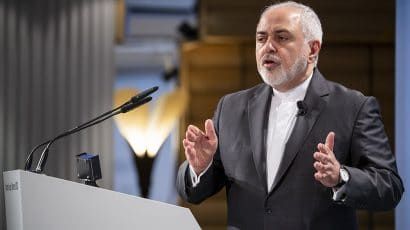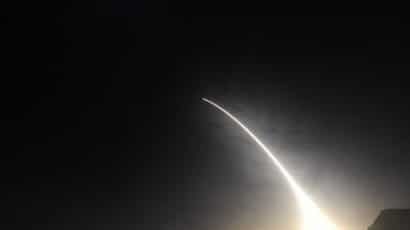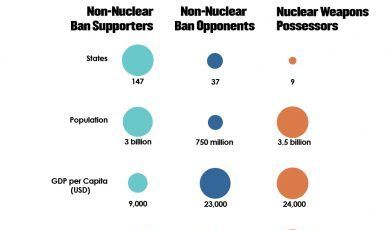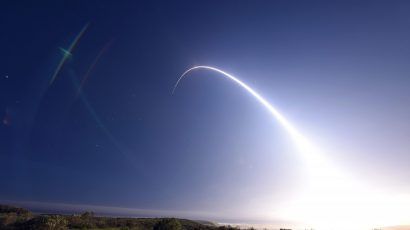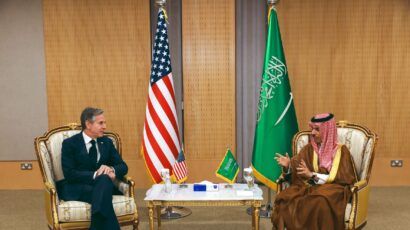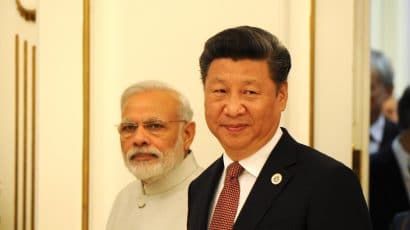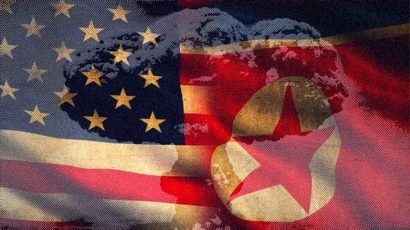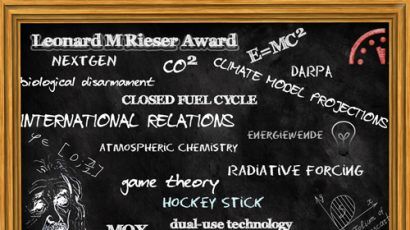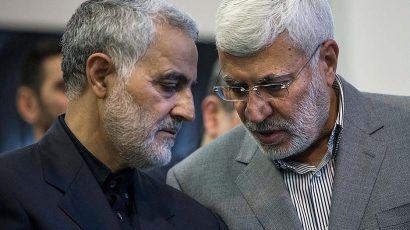Search results for nuclear terrorism
Scientists estimate that 1,000 people will die from cancer as a result of their exposure to radiation from the Fukushima Daiichi disaster. This number is often contrasted with the 20,000 who died in the March 11 earthquake and tsunami that caused the nuclear debacle -- presumably to suggest that the 1,000 deaths are less significant and should not be used to justify a nuclear power shutdown.
Parting words: Gates and tactical nuclear weapons in Europe
In a recent speech in Brussels, departing Defense Secretary Robert Gates criticized European members of NATO for allowing defense obligations to fall increasingly upon the United States, continuing a funding imbalance that could lead Americans to question whether the costs of NATO are justified.
Will the Senate support new nuclear arms reductions?
President Barack Obama has an ambitious agenda on nuclear weapons issues that will take a long time to implement. For example, the earliest the Senate is likely to vote again on the Comprehensive Test Ban Treaty (CTBT) is 2010. Likewise, a Fissile Material Cutoff Treaty is at least three years away. Ditto for the president's goal of safeguarding all vulnerable nuclear weapons and nuclear materials worldwide. And then there is his most ambitious goal of all--a nuclear-weapon-free world, which even he has suggested probably won't take place in his lifetime.
The risks of North Korea’s nuclear restart
On April 13, the U.N. Security Council condemned North Korea's rocket launch earlier in the month. Within nine hours, North Korea denounced and rejected the Security Council statement; expelled international inspectors and the U.S.
10 years after Fukushima: Are Japanese nuclear power plants safe?
Following the Fukushima Daiichi Nuclear Power Station accident in 2011, the Nuclear Regulation Authority set stricter and more rational standards. However, in practice, Japanese regulators have often compromised their reviews. It’s worth asking: Are the restarted Japanese nuclear power plants safe?
Nine hurdles to reviving the Iran nuclear deal
Although reviving the Iran nuclear agreement is certainly still possible, it won’t be easy. The two sides will need to overcome nine hurdles to make it happen.
Revenge is a dish best served nuclear. US deterrence depends on it.
Deterrence appears to depend on rational actors who desire survival above all else. But it's revenge, not rationality, that often drives decisions.
Trump and Putin meet under a nuclear cloud
In a few days, US President Donald Trump will meet with Russian President Vladimir Putin in Helsinki. Media coverage will undoubtedly highlight Russian meddling in the 2016 US presidential election, but it would be remiss not to discuss the nuclear implications of the Trump-Putin summit as well. Kto vinovat? (Russian for “who is to blame?”) … Continued
Game of Thrones: Dragons are the nuclear option
We’re in the midst of a new Game of Thrones season, which seems to be finally reaching a grand finale. In the latest episode, known as “The Spoils of War,” viewers get a climactic, graphic, explicit view of the power of the heroine’s dragons, which reduce men, women and children to ashes in seconds, destroying … Continued
New terminology to help prevent accidental nuclear war
Since the advent of US and Russian nuclear-armed ballistic missiles and early warning systems, the danger has always existed that a false warning of attack—believed to be true—could cause either nation to inadvertently launch a responsive “retaliatory” strike with its own nuclear forces. Fear of a disarming nuclear strike, especially during a crisis, creates immense … Continued
Haves, have-nots, and need-nots: The nuclear ban exposes hidden fault lines
The nuclear ban challenges conventional models of the nuclear age—and illustrates the consequences of structural inequities in the pursuit of disarmament.
The IAEA’s dilemma with Syria’s Al Kibar nuclear site
Although Israel's September 2007 raid on what it believed to be the Al Kibar nuclear site in Syria has often been compared to its 1981 raid on the Osirak nuclear reactor in Iraq, the aura of secrecy surrounding the Syria raid stands in stark contrast to the extensive public explanations offered by Israel 27 years ago. Further details about the Syria raid have recently been provided, but they didn't come from Israel. Instead, senior U.S. intelligence officials presented them to Congress and the International Atomic Energy Agency (IAEA) in late April--nearly eight months after the raid.
Why is America getting a new $100 billion nuclear weapon?
The reasons for the United States new intercontinental ballistic missile—the ground-based strategic deterrent, or GBSD—are historical, political, and to a significant extent economic. Many people in the states where the new missile will be built and based see it as an economic lifeline. Their elected officials take campaign donations from defense companies, to be sure, but are also trying to deliver jobs in a political environment that has been hostile to government spending on anything but defense.
Saudi Arabia can alleviate US concerns over its civilian nuclear energy program. Here’s how.
Two nonproliferation experts discuss how Saudi Arabia could become a responsible civilian nuclear power.
India–China border dispute: the curious incident of a nuclear dog that didn’t bark
The nuclear dimension of the recent border clashes was conspicuous by its invisibility. Can the rest of the world learn from it?
Breaking the vicious cycle of the US-North Korea nuclear standoff
Sanctions alone will not solve the North Korean nuclear problem.
Game changers: How the next generation can tackle the nuclear weapons problem
Millennials will inherit Cold War arsenals, but they don’t have to be stuck with old ways of thinking about what to do with nuclear weapons.
The narrow field of options for safely managing Ukraine’s Zaporizhzhia Nuclear Power Plant
Russian and Ukrainian officials making decisions about the Zaporizhzhia Nuclear Power Plant are challenged by a complex safety and security profile. No single reactor-management option will address all hazards as long as the war continues.
Facebook removes pro-Soleimani Instagram content, calling it support for terrorism. Laurence Tribe says FB has it wrong
Facebook says it is taking down Instagram posts supportive of Iranian Maj. Gen. Qassem Soleimani in order to comply with US sanctions on Iran. Some experts think the company is misinterpreting legal precedent.

